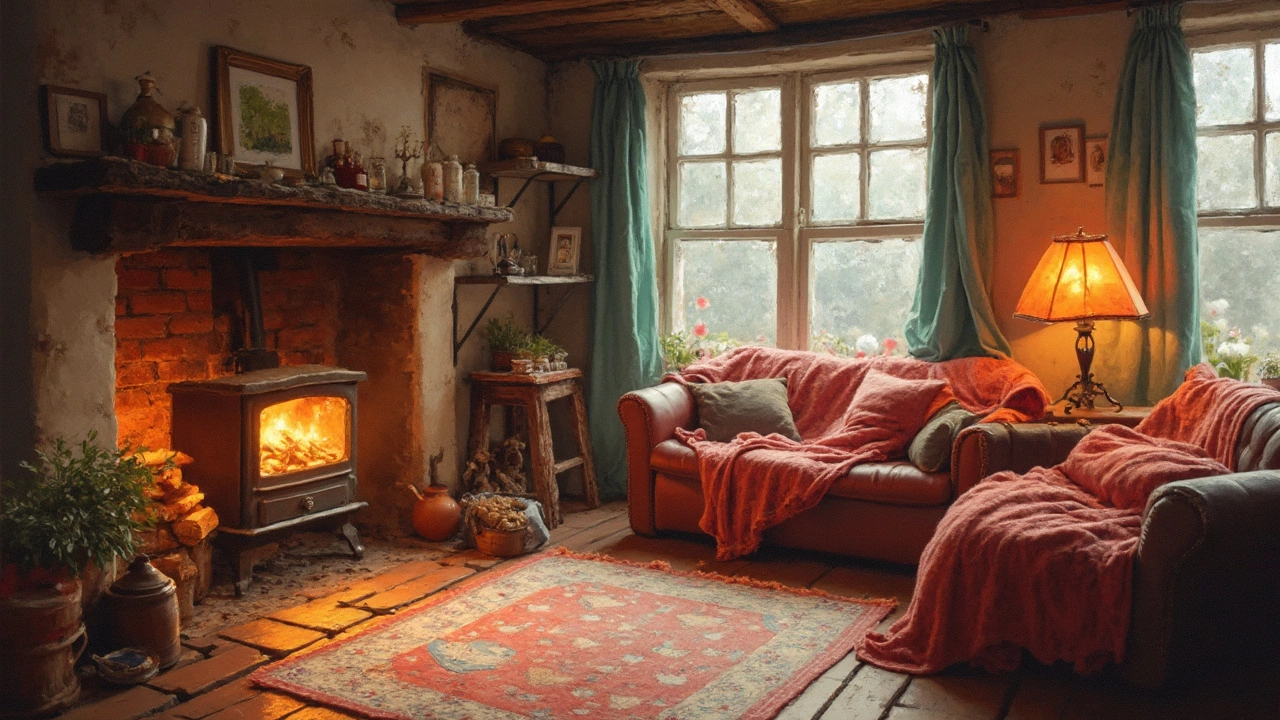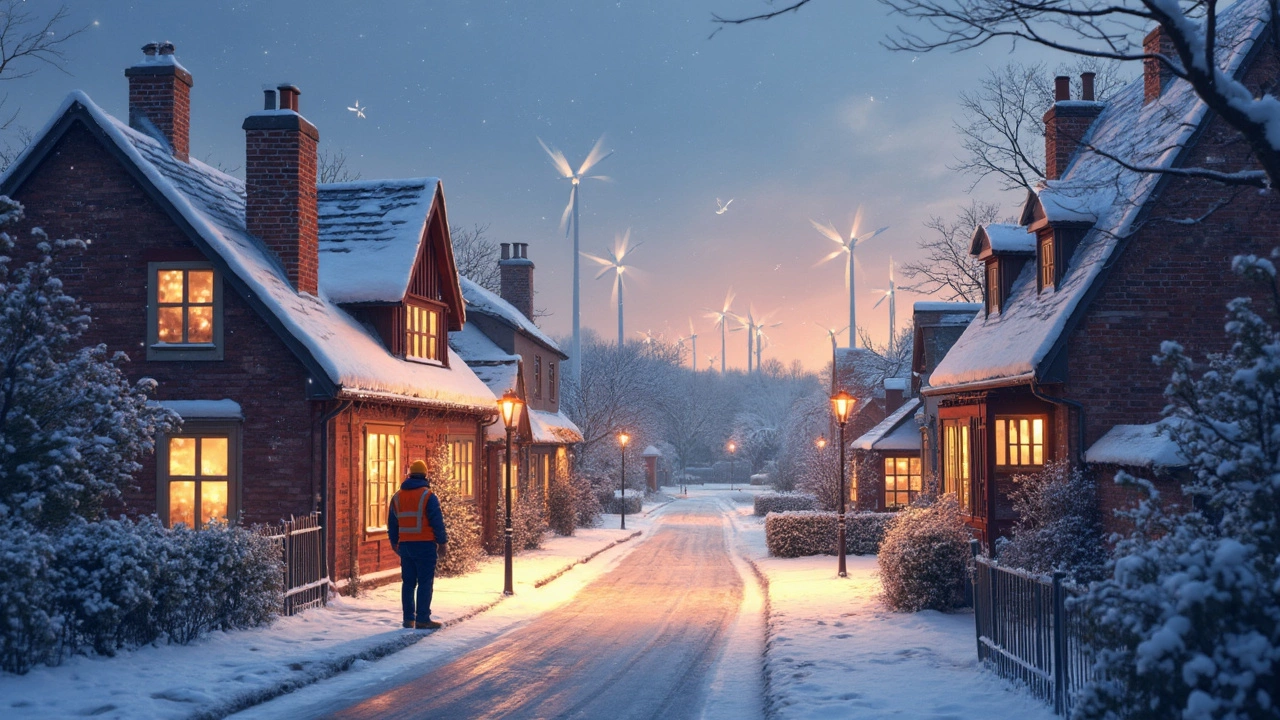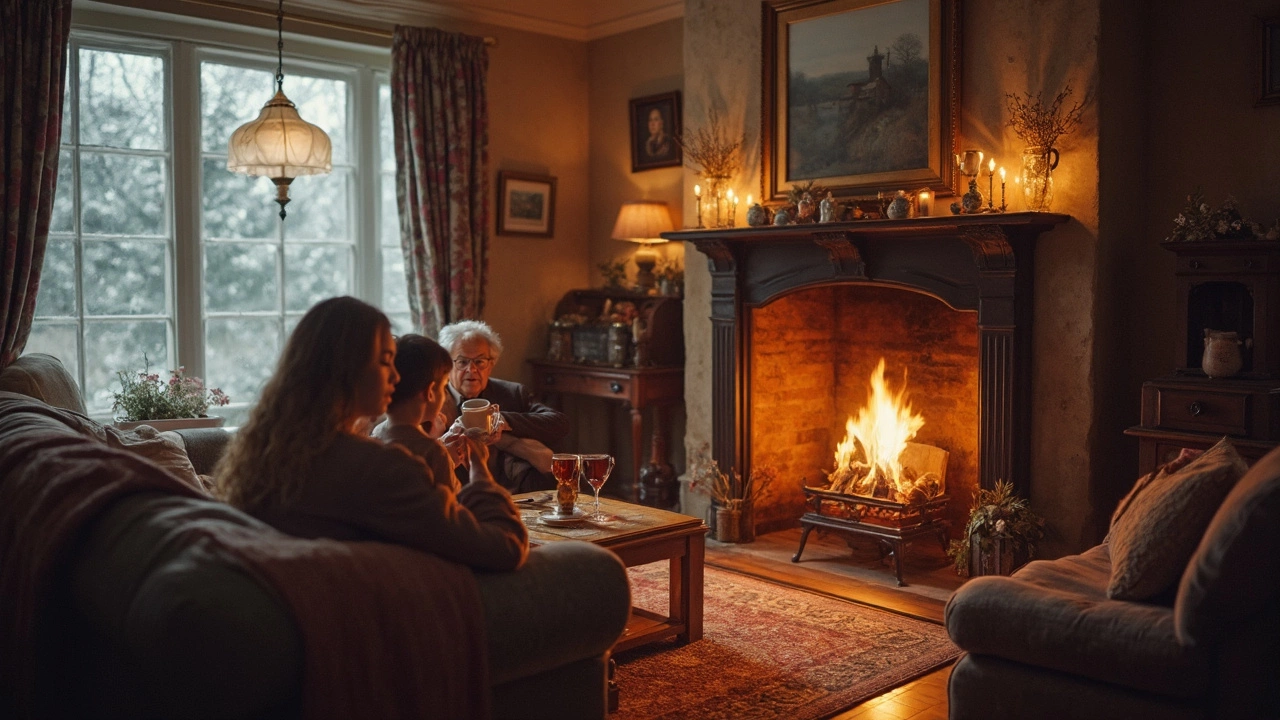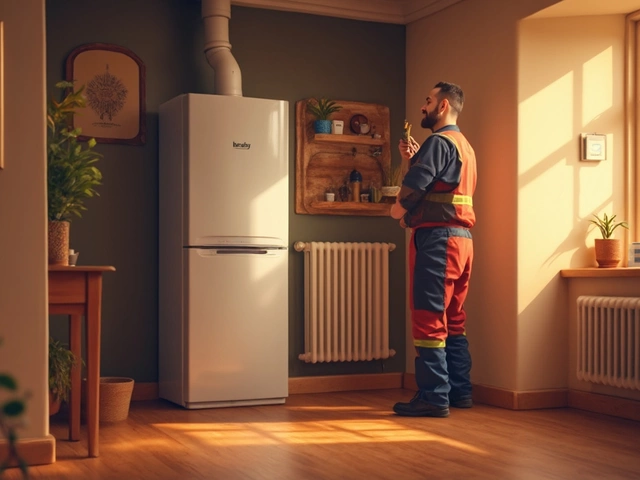So, the boiler's given up on you, huh? It's one of those days when staying warm turns into a Herculean task. But don't worry, we're diving straight into how to keep the chill at bay until that boiler's up and running again.
First, it's all about understanding what's gone wrong with your boiler. Sometimes, it’s something a simple tweak can fix. Check if there are any obvious issues like a frozen pipe or a tripped circuit breaker. A bit of DIY boiler knowledge can come in handy more than you think.
- Understanding the Problem
- Temporary Heating Solutions
- Long-term Alternatives
- Energy-Efficient Tips
- When to Call the Experts
Understanding the Problem
When your boiler is acting up, it can feel like a mystery wrapped in a puzzle. But understanding the root of the problem can make all the difference. Let’s break it down into manageable chunks.
Common Boiler Issues
Boilers are complex creatures, and a few usual suspects often cause problems. One of the most frequent issues is air in the system, leading your radiators to heat unevenly or not at all. A quick fix is bleeding the radiators to release the trapped air.
Another common hiccup is a frozen condensate pipe, particularly in cold weather. It causes your boiler to stop working, but you can thaw it with warm water. Just be careful not to use boiling water, as it might crack the pipe.
Broken thermostats can leave your heating off-kilter. Double-check that the settings haven't gone haywire before assuming the worst.
Why It Matters
Identifying the issue correctly saves time, money, and a lot of head-scratching. Plus, understanding the basics helps communicate effectively with any professional you might call in.
Boiler Lifespan Statistics
Did you know the average boiler has a lifespan of about 10-15 years? Keeping this in mind helps plan ahead and understand when replacement might be more practical than repair.
| Boiler Type | Average Lifespan |
|---|---|
| Regular Boiler | 10-15 years |
| Combi Boiler | 12-15 years |
By figuring out what's broken, you're one step closer to making informed decisions and keeping your home warm with efficient heating solutions.
Temporary Heating Solutions
When the boiler's on the fritz, keeping warm is priority number one. There are solid solutions to keep your home toasty while waiting for repairs. Think of it as making the best out of a tricky situation.
Space Heaters: Your New Best Friend
Space heaters are lifesavers when your boiler repair is pending. They're affordable, easy to use, and super effective in smaller spaces. Be sure to place them safely, away from flammable objects, and don't leave them unattended.
Layer Up the Old-Fashioned Way
One of the simplest ways to stay warm is to layer up. Dressing in multiple layers and using extra blankets can keep you comfortable without relying on electric heating. This is energy-efficient, too.
Cooking Up Warmth
Cooking meals can generate a surprising amount of warmth in your kitchen. If it's cold, a few extra culinary adventures might just heat up the room.
According to the U.S. Department of Energy, "Cooking can bring warmth to not only your body but also your room temperature."
Seal Drafts
Stop the heat from escaping by sealing drafts in windows and doors. Draft excluders, weather-stripping, and door snakes are quick and cheap fixes. They help your temporary heating solutions work more effectively, keeping every bit of warmth inside.
Alternative Heat Sources
Fireplaces and wood-burning stoves are traditional yet effective methods to combat cold in these situations. They're great for heating a larger area and add a cozy vibe to your home.
Here's a heads-up: Before you go overboard with these heating solutions, check your electricity usage if you're using multiple devices. Some heaters can be quite power-hungry. Just something to keep in mind as you craft your warm oasis!

Long-term Alternatives
If you're dealing with a perpetually broken boiler or just planning ahead, it's worth considering some long-term heating solutions that don’t rely on the whims of your current setup.
Heat Pumps
These gadgets are all the rage, especially here in New Zealand, as they efficiently double as air conditioners and heaters. They work on the same principle as a refrigerator but in reverse. Electricity powers them, but they are way more efficient than conventional electric heaters. They pull warmth from the outside air, even when it's cold. It's like a clever magic trick that keeps you toasty.
Wood Burners
Nothing beats the traditional charm and warmth of a wood burner. Apart from being a great backup, they add a cozy vibe to any room. Make sure to have a reliable source of wood and check local regulations, as some places have restrictions on wood burning for environmental reasons.
Solar Heating
If you want to go green, solar heaters could be your best friend. They use panels to capture sunlight and convert it into heat. It's wonderful for the environment and can slash your energy bills. However, it requires a bit of an upfront investment, and you need to know well your sunny days from your cloudy ones.
Energy-Efficient Space Heaters
Modern space heaters are a leap from those old power-gulping models. Opt for ceramic or oil-filled radiators, which maintain heat longer even after they're turned off, giving you more bang for your electric buck.
Whichever route you take, these long-term alternatives can revolutionize how you heat your home. They're ideal if you're looking to ditch the boiler blues permanently!
Energy-Efficient Tips
Saving energy isn't just good for your wallet; it's also great for the planet. So, while your boiler's on the fritz, let's get into some ways to keep the warmth in without cranking up other power-hungry heaters.
Use Insulation Wisely
Ever thought about how your granny’s old draft excluders can save your bacon? Draft excluders, thick curtains, and even some well-placed rugs can do wonders. These stop your precious heat from escaping and keep the cold winds at bay. And guess what? You’re low-key saving energy by not letting the outside chill into your warm sanctuary.
Layers Are Your Best Friend
It sounds basic, but wearing layers can make a big difference. By piling on a few more clothes, you are essentially turning yourself into a mini furnace. Stay comfy with sweaters, socks, and maybe even a snug beanie. It's like insulating your home, but for your body.
Maximize Daylight
We’ve got an ultimate heater up there, the sun. During daylight, keep your curtains wide open to let in as much sunlight as possible. The natural heat will give you a little extra warmth without touching your electricity.
Cooking More Than Just Meals
This might sound odd but think about cooking more at home. The process gives off heat and warms up your kitchen. Pop a roast in the oven, make a hearty soup, and turn your kitchen into a cozy spot you won’t want to leave. Two birds, one stone!
Check Appliances
Keep other appliances energy-efficient, too. Swap out old bulbs for energy-efficient LEDs, use a smart thermostat if possible, and turn off gadgets you're not using. Little changes like this can make your home averse to cold weather.

When to Call the Experts
Let’s face it, not every boiler repair is a DIY job. Knowing when to call in the cavalry can save you a heap of trouble (and probably some cash too). If things aren't improving or you're hearing strange noises like clunking, whirring, or humming, then it's time to pick up the phone.
Signs It's Over Your Head
Some issues just scream 'professional help.' For example, if there's a gas smell, it's a no-brainer—get out and call an expert. Similarly, if you're seeing leaks or noticing the heating isn’t consistent, trying to fix it yourself might lead to more harm than good.
- Leaks that leave puddles or damp patches
- A build-up of strange noises you can't shake off
- Persistent low water pressure
- Boiler frequently shutting itself off
Understanding Costs and Estimates
When you call in the pros, it's wise to understand your potential costs. Ask for an estimate before any work begins, and if possible, get a few quotes to compare. Don't shy away from asking detailed questions—how long has this company been in business? What's their experience with your brand and heating solutions? Every bit of extra info helps.
Working with Experts
Once the experts arrive, be upfront about everything you’ve observed. Every detail you provide assists in diagnosing the problem quicker. And while they’re there, inquire about maintenance tips to keep your system in top shape long after they’ve left.
Sometimes, the best investment is in the expertise you bring on board. A well-maintained home heating system isn't just about comfort; it’s about safety, too. After all, peace of mind is priceless, especially with winter chill lurking outside.





